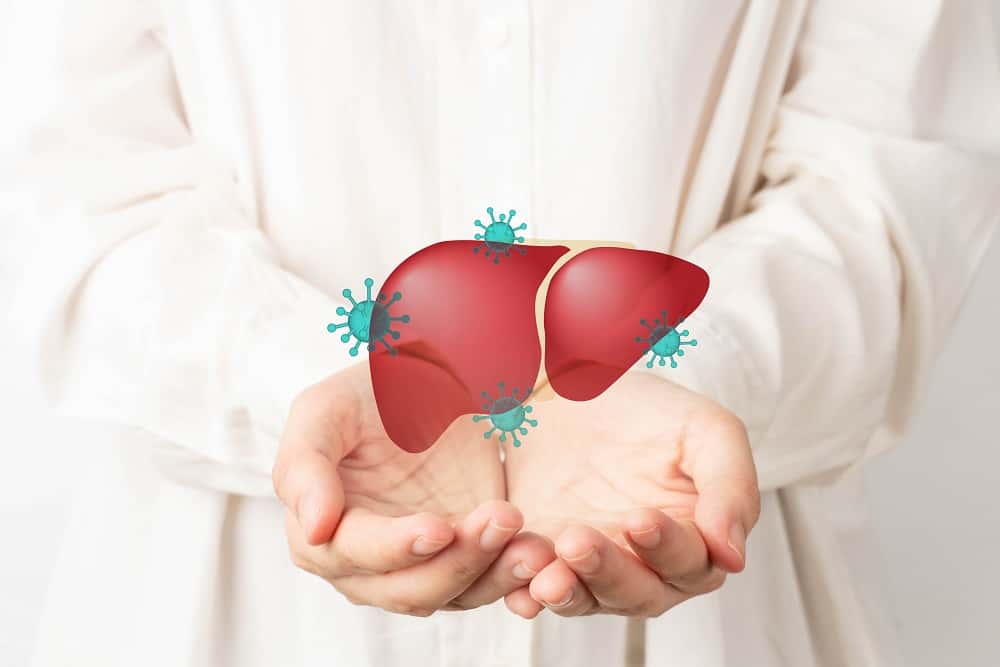How to tell if I may have a liver disease:

Liver disease has different grades, from mild unnoticeable alteration of function to severe affection and failure. Manifestations differ according to the severity and the cause of the disease. Common symptoms include:
- Persistent fatigue and tiredness: Fatigue is a very nonspecific symptom and can result from virtually any disease, but fatigue resulting from liver affection is characterized by being persistent. It doesn’t change from morning to night and is associated with a tendency to sleep for prolonged hours.
- Loss of appetite: Liver patients have portal hypertension, which is the congestion of blood vessels connecting the liver to the gastrointestinal system. This causes early satiety and general loss of appetite. You may also feel slight abdominal discomfort following even small meals.
- Abdominal pain: Not all causes of liver disease have abdominal pain as a manifestation, but patients who have viral hepatitis or chronic alcoholism can have severe attacks of abdominal pain owing to the associated liver inflammation.
- Jaundice: The most well-known of liver disease symptoms is jaundice. Jaundice occurs when the level of a substance called bilirubin rises in the blood and deposits in tissues. Bilirubin is normally produced in the body from the breakdown of hemoglobin, which forms red blood cells. Normally, bilirubin is excreted into the bile. In the case of acute cases of hepatitis, bile channels in the liver are obstructed and liver cells become unable to process bilirubin, causing its accumulation.
- Dark urine: When bile channels are obstructed in liver disease, bile regurgitates back to the blood and is excreted in the urine, making its color dark like tea.
- Leg and abdominal swelling (ascites): One hallmark of late liver disease is the development of ascites. Ascites are the accumulation of fluid in the abdominal cavity. When the liver becomes severely affected, salt and water accumulate in the body. This overload is seen in the form of leg swelling and abdominal distension.
- Vomiting blood: There are many causes for bloody vomiting including stomach ulcers or as a reaction to certain drugs. In liver disease, when portal hypertension occurs, large blood vessels in the esophagus (the tube that leads to the stomach) become distended and can bleed profusely. This is a life-threatening condition that needs immediate treatment.
- Easy bruising and prolonged coagulation: The liver produces most coagulation factors, which are proteins that control blood coagulation after injury. When liver impairment occurs, patients can become easily bruised after minor trauma and can bleed profusely after minor injuries.
- Palmar erythema: Unusual redness of your hand palm can be a sign of liver disease. It results from an increase in blood estrogen. Estrogen is the female sex hormone and is present in both males and females. Estrogen is normally destroyed by the liver at a constant rate, and when liver functions are impaired, its levels rise. This rise causes the dilatation of blood capillaries in your palm.
- Gynecomastia: Because of the rise of blood estrogen levels, some men with advanced liver disease may notice that their breasts enlarge and become tender. Estrogen stimulates breast tissue to enlarge the same way it happens in adolescent females.
- Losing muscle mass: The liver is the primary site of protein formation in the body. Many of these proteins are essential for keeping muscle mass across the whole body. Chronic liver disease patients develop a condition called cachexia, where they lose their muscles and fat and appear extremely lean.
- Hepatic encephalopathy: Hepatic encephalopathy is a condition seen in patients with acute or chronic liver failure. The liver has an important detoxifying function of ammonia. Ammonia is the byproduct of using proteins by the body and is lethal to the nervous system. It can cross to brain cells and cause a variety of manifestations from lack of concentration and sleepiness to coma.
- Hand tremors: Chronic liver disease patients can suffer from severe tremors. It is thought to result as a part of hepatic encephalopathy.
